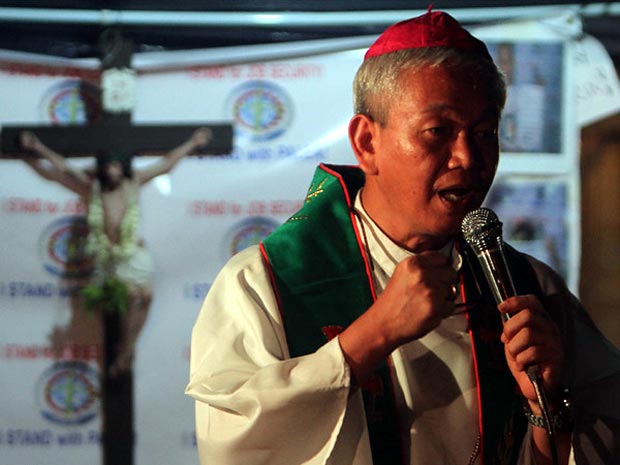Bishops, other religious leaders vow to fight death penalty
It might be the season of cheer, but Catholic bishops and a group of religious leaders have vowed to continue the grim task of opposing the death penalty despite the Christmas holidays.
Some officials of the Catholic Bishops’ Conference of the Philippines (CBCP) committed to personally write House representatives to convince them to vote against the reimposition of capital punishment for heinous crimes.
“We will continue our antideath penalty campaign. We will campaign among politicians and the public and stress that this is not the solution to our problems,” said Manila auxiliary bishop Broderick Pabillo, who chairs the CBCP Episcopal Commission on the Laity.
The House of Representatives approved at the committee level the bill reviving capital punishment on Wednesday last week, with a vote of 12-6 and one abstention. But the lawmakers decided to defer approval of the bill to early next year to allow for extensive debates on the controversial measure.
AMRSP statement
Article continues after this advertisementThe reimposition of the death penalty for heinous crimes was one of President Duterte’s campaign promises.
Article continues after this advertisementThe Association of Major Religious Superiors in the Philippines (AMRSP) also released a statement opposing the attempt to reinstate capital punishment, arguing that the death penalty brings no justice to victims of heinous crimes but fosters vengeance instead.
“I will write each of the representatives,” said Pabillo. “It’s not only the individual bishops who will do this, but also the lay faithful who will speak with them or write to them,” he added.
Balanga Bishop Ruperto Santos said his diocese was currently in talks with Bataan Rep. Joet Garcia for them to work together against the death penalty.
“God gives life. It is his gift to us. As his gift we have to treasure and cherish it,” said the chair of the CBCP Episcopal Commission on Migrant and Itinerant People. “There is always hope and healing (for) anyone, even the bad who can still be saved,” Santos added.
Lipa Archbishop Ramon Arguelles meanwhile expressed confidence that lawmakers from the province would vote down the bill. “I am confident that all Batangueño (representatives) will oppose the reimposition of death penalty. Batangas is pro-God, prolife, propeople and proenvironment,” he said.
In its statement signed by AMRSP cochairs Fr. Cielito Almazan and Sr. Regina Kuizon and its other members, the group said the solution to the problem of rising crime may lie in reforming the justice system, cleaning the ranks of law enforcers, and improving penal facilities.
“If death penalty is once again imposed, will it be a safeguard against the conviction of the innocent? Past executions have seen that almost all of those convicted are poor. Will we see a repeat of this?” the AMRSP statement asked.
No correlation
The group also stressed that capital punishment has not been proven to be an effective deterrent to crime, citing an Amnesty International report that showed no correlation between capital punishment and a decrease in crime statistics.
“Research has likewise been consistent, suggesting that criminals are mainly concerned about whether they’ll be caught, not what might happen to them afterward,” the AMRSP statement said.
Neither does death penalty result in the restoration of justice, the group added.
“Capital punishment may satisfy the desire for vindication, but this is not the desired end for a humane and Christian approach to punishment,” the AMRSP said. It noted that for punishment to be beneficial, questions on deterrence, retribution, rehabilitation and the protection of society must be considered.
